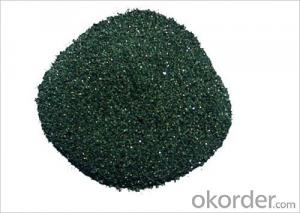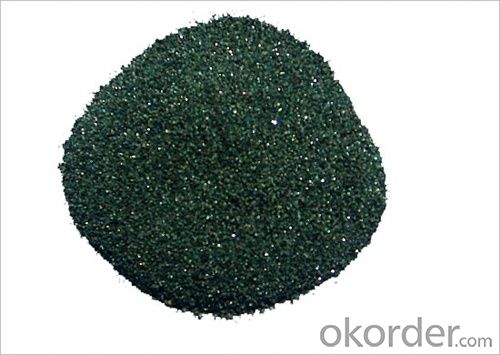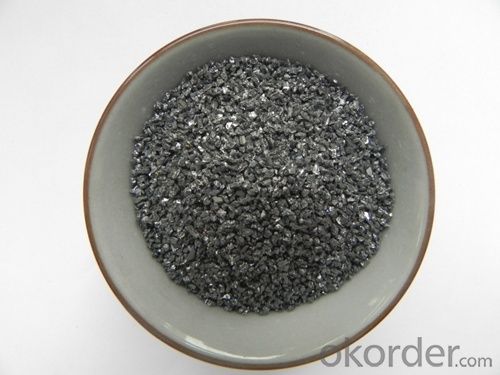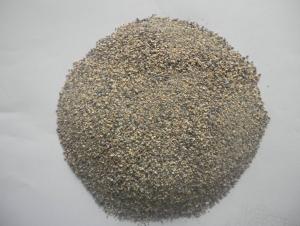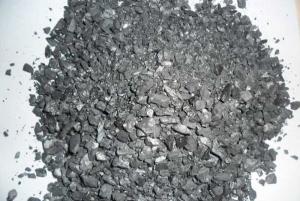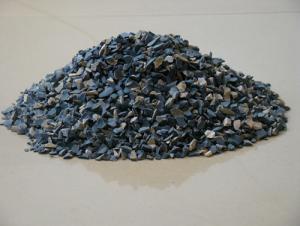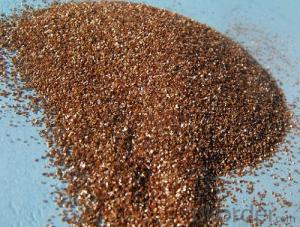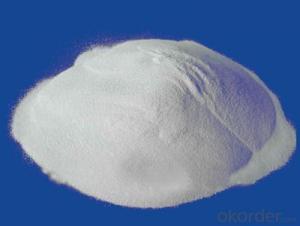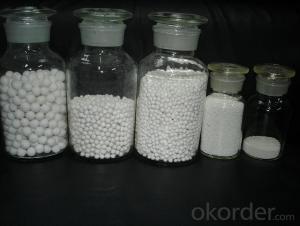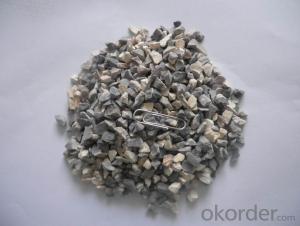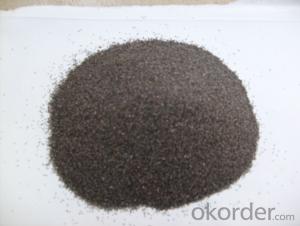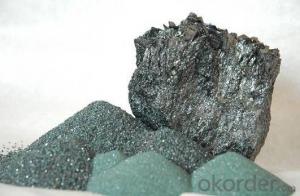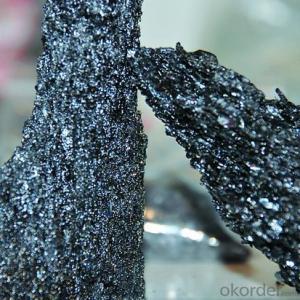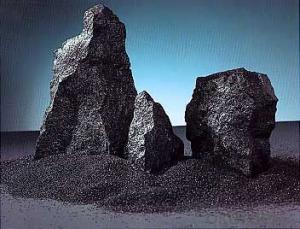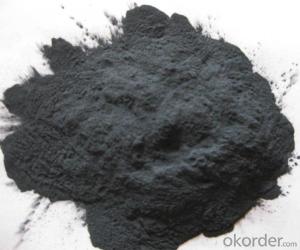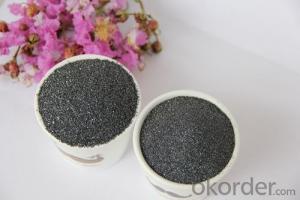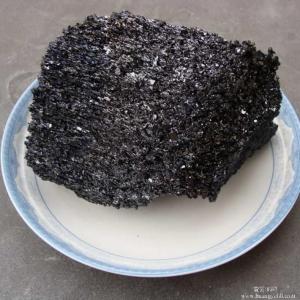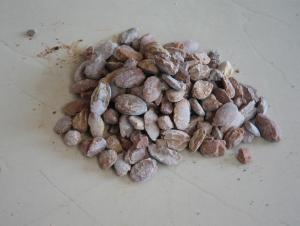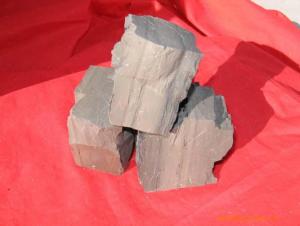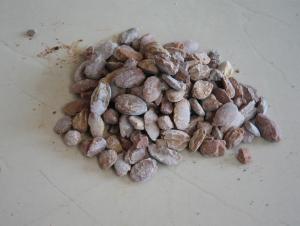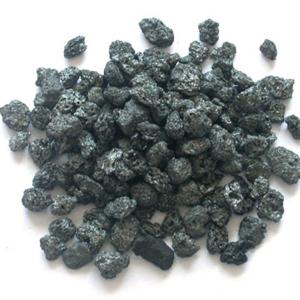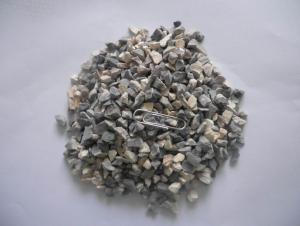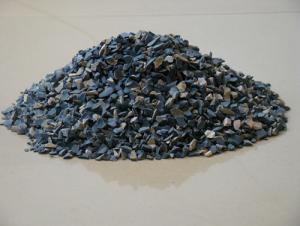99% Pure SiC Powder Nano Silicon Carbide Raw Materials for Refractory
- Loading Port:
- China main port
- Payment Terms:
- TT OR LC
- Min Order Qty:
- 25 m.t.
- Supply Capability:
- 2000 m.t./month
OKorder Service Pledge
OKorder Financial Service
You Might Also Like
Quick Details
| Place of Origin: | Henan, China (Mainland) | Shape: | Block | Material: | Silicon Carbide (SiC), Silicon Carbide |
| Refractoriness (Degree): | Common (1580°< Refractoriness< 1770°) | SiC Content (%): | 97 | Model Number: | DRC |
| Brand Name: | CNBM | Usage: | Refractory | Color: | Black |
| F.C content: | 0-10% | S content: | <0.3%< p=""> | H2O: | <1%< p=""> |
| Particle mm: | 0-200 | BD: | 3.2g/cm3 | Performance: | DEOXIDIZER |
| SAMPLE: | Free |
Packaging & Delivery
| Packaging Details: | Silicon Carbide packing: ton bags with small 10 kg bags inside, or according to requirement. |
| Delivery Detail: | 10-30 days according to Silicon Carbide quantity |
Specifications
Silicon Carbide:
1) High SIC content: 97.0%
2) Professional manufacturer
3) Owning Exporting License
99% Pure SIC Powder Nano Silicon Carbide Refractory
Silicon Carbide Relate Information
Product Description
DETAILED DESCRIPTION
Silicon Carbide (Black) is a high purity black silicon carbide refractory grain, which is made by fusing quartz and coke in high power electrical furnace. It characterizes the
high hardness, wear resistance ability, corrosion resistance ability and high-tempera-
ture strength. It is mainly used as deoxidizer in steelmaking process.
Silicon carbide deoxidizer is a new kind of strong compound deoxidizer can replace the traditional silica fume, it has more stable and dioxin effect, improved the quality of the steel, reduced the consumption and environmental pollution.
APPLICATION
1. The silicon carbide with low SIC content around 85% is always used in the metallurgy industry, as one deoxidize material.
2. With the SIC content is above 95%, because of its high refractory temperature, it is always used in the refractory industry.
PHYSICAL PROPERTIES:
Item | Specifications |
BD | 3.2g/cm3 |
Size | 0-1mm,1-3mm,10-30mm, 36-800mesh, F16-F800 mesh |
Usage | Refractory, Casting |
CHEMICAL INDEXES:
Items | DRC97 | DRC88 |
Sic | >97 | 85±2 |
C | 0-5 | 5-10 |
S | <0.3< span=""> | <0.3< span=""> |
H2O | <1< span=""> | <1< span=""> |
Particle mm | 0~200 | ≤5 |
Performance | New deoxidizer, deoxidization fast, ability and stably. | |
Application | Steel metallurgical deoxidizing | |
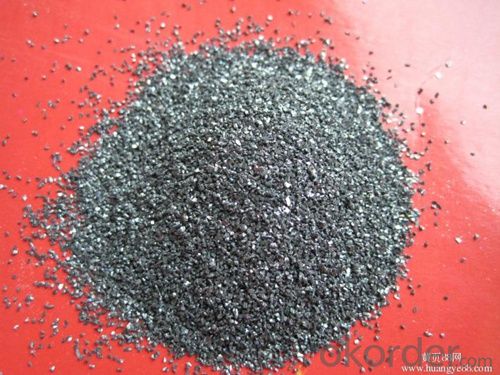
SIZES AVAILABLE:
20-0mm, 10-0mm, 8-5mm, 5-3mm, 3-1mm, 1-0mm,
8/16mesh, 16/30mesh, 30/60mesh, 60/90mesh,
0-100mesh, 0-200mesh, 0-325mesh,
Other size available upon request.
- Q: How to understand qualitative and qualitative refractory materials?
- Such as amorphous refractory castable, referred to as bulk loading, cast material, ramming material, refractory clay etc., utensils and other special products. Amorphous refractory material products, refractory heat insulating bricks and experimental and industrial crucible, spraying materials, such as burning bricks, electric melting brick, turn it into required shape and process heat treatment in where it is used.
- Q: What are the meanings of azs, 34% and ec in fused brick?
- The fused brick, also called zircon corundum brick, is shorted as AZS for three chemical components in Al2O3-ZrO2-SiO2 ternary diagram. I don't know the meaning of EC.
- Q: Do you know the refractories?
- Alkaline material products: MgO, CaO based crystalline phase, because MgO and CaO are alkaline earth oxides, so it is called alkaline refractory. Their high melting point, alkali resistance slag (C/S > 2) corrosion ability is strong, belong to advanced refractory materials, but they are easy to hydration. Magnesia chrome brick, dolomite brick, brick olive and other products, the main chemical composition is MgO, CaO China also belongs to alkaline materials.
- Q: Who can introduce the difference between galvanized fireproof?coatings and steel structure fireproof materials?
- Steel structure with heat galvanization has a process requirement, which is to spray fireproof coatings. Fireproof coatings have different functions and purposes from galvanized process. When the steel surface derusted, it generally needs to brush rich-zinc primer before spraying fireproof coating. Fireproof coating plan itself includes anticorrosion plan, and fireproof coating is just a layer of coating plans, which is an intermediate layer in general. Fireproof coating plan generally includes primer, fireproof coating and finishing paint. Some fireproof coatings can be directly painted on the bare steel elements without primer and finishing paint.
- Q: which kind of material should be used in fireproofing cabinet?
- Here are a few good materials: 1. The mineral wool board, glass wool board: it mainly tales mineral wool, glass wool as insulation materials. It's non-combustible, light weight and has good high temperature resistance, but there are shortcomings ① short?fiber will harm the human respiratory system, ② poor sheet strength, ③ poor barrier property of sheet for smoke of fire disaster, ④ poor decorative properity, ⑤large installment and construction work. Thus, most of the boards were sheets that take inorganic anchoring material as base material, glass wool as reinforcing material. 2. cement board: Cement board has high strength and wide sources. It is often used in fireproof suspended?ceiling and partition in the past, but it has poor fire resistance and is easy to burst and lose protective function , which will limit it's applications. Cement concrete component has good thermal insulation and sound insulation properties, and it can be used as partition and roof board. Fiber reinforced cement board and other improved varieties appear in the construction?materials market, and they are high strength and have good fire resistance, but their disadvantages are poor toughness, large alkalinity and poor decoration effect. 3. perlite board, cenosphere board, vermiculite board: It's a kind of hollow plate that takes low alkalinity cement as base material, perlite, glass beads, vermiculite as the aerated filling material, and is made by adding some auxiliary. It has characteristics of light weight, high strength, good toughness, fireproofing and thermal insulation, easy for construction,etc. and it can be widely used in high-rise building frame compartment, household, bathroom, kitchen, communication pipe and other non-load bearing areas.
- Q: What's the maximum temperature that the refractory ceramic fiber cloth can endure?
- Ceramic fiber cloth is high temperature resistant and its continous use temperature can be up to 1000℃. It has high temperature resistance, low heat conductivity, thermal shock resistance, low thermal capacity; superior insulating property at high temperature, long service life; resistance to nonferrous metals like molten aluminum and zinc erosion; low and high temperature strength; innocuity with no adverse effect on the environment; and it is easy to install.
- Q: What is the classification standard of fireproofing material levels?
- Standard: Class A: Incombustible building material, almost without burning. class A1: Non-combustible, no open flame,class A2: Non-combustible,it needs to measure smoke and be qualified. Class B1: Nonflammable building material: Nonflammable materials have good flame resistance function. when it contacts open fire or is under high temperature, it's difficult to burn and be spreading rapidly, and will stop burn after removing the combustion?source. Class B2: Combustible?building?materials: Combustible materials have good flame resistance function. when it contacts open fire or is put in the air at high temperature, it will immediately burst into flames, and easily result in the spreading of fire, such as wooden column, timber roof truss, timber beam, wooden stairs, etc. Class B3: Inflammability building materials, without any flame resisting effects, easy to burn, and has large danger of fire disaster.
- Q: Who knows the fire resistant level of the rock wool color plate?
- Hello; Same with other unprotected steel, the fire endurance of the color steel?plate is generally 15 minutes. It is not a fireproofing material, let alone fire resistant level. If the color steel plate has sprayed fire retardant coating and the thermal insulation filling material in the core is rock wool fiber, it can achieve A level fireproofing requirements. The color steel?plate refers to the painted steel plate, which is a steel plate with organic coating. The color steel board is divided into the single plate, color steel composite board, floor support board, ect. It is widely used in large public buildings, public plants, portable dwelling, and integrated housing walls and roofings. I hope that will help you.
- Q: How should refractory cement be used?
- Refractory cement is very easy to use. Add some water and mix, and it will harden. Generally there is no need to add other binding agents, but you can add some refractory aggregate and powder. If you use only refractory cement, it will generate a lot of cracks after high temperature. Generally refractory cement can withstand temperature of about 1300 degrees.
- Q: Who knows about the differences between 3M fireproofing materials and ShiLiDe materials?
- Advertising materials can be divided into fireproofing and non-fireproofing ones which can not tell the differences with naked eyes. You can ask 3M to provide test reports or go to a the third party test organization SGS to do flame retardant test, maybe I can help you. Mineral wool board is harmful to human body, will lead to chronic poisoning, the quality of it is bad! You must pay attention to it! It can not be used in chemical and pharmaceutical plants.
Send your message to us
99% Pure SiC Powder Nano Silicon Carbide Raw Materials for Refractory
- Loading Port:
- China main port
- Payment Terms:
- TT OR LC
- Min Order Qty:
- 25 m.t.
- Supply Capability:
- 2000 m.t./month
OKorder Service Pledge
OKorder Financial Service
Similar products
Hot products
Hot Searches
Related keywords
